by Chris Hilburn-Trenkle
The University of North Carolina at Chapel Hill School of Social Work made history when it established its doctoral program in the fall of 1993, becoming the first doctoral social work program in the state.
The School’s doctoral program has since produced 137 graduates, joined the Group for the Advancement of Doctoral Education in Social Work (GADE) and positioned itself and its students at the forefront of cutting-edge research. The program has centered itself around social interventions, interacting with families, individuals and communities to create positive change that impacts the entire field of social work and social welfare.
Co-chaired by faculty members Anne-Linda Furstenberg and Gary Bowen, the first cohort of students included Mimi Chapman, now the Frank A. Daniels Distinguished Professor for Human Service Policy Information and the associate dean for doctoral education at the School of Social Work.
To celebrate more than 30 years of excellence and helping to bring about social change, we spoke with current and former students and faculty members who shared their memories of the program, its impact and the connections it helped them build and maintain throughout the profession. Please consider joining our community of passionate donors dedicated to advancing social justice, innovative research, and impactful interventions by donating today.
The statements have been edited for clarity.
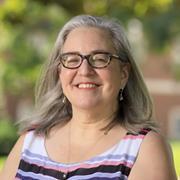
“While the faculty and the coursework certainly helped me learn about social work research and practice, the doctoral program at UNC offered the chance to develop my leadership skills. I had so many opportunities: helping to found a social work doctoral student organization, writing a successful course development grant, serving on the School’s doctoral program committee, and working with the Center for Teaching Excellence to strengthen education across the university. These early experiences of organizing, curriculum development, advocacy and interdisciplinary collaboration helped position me for a future in academic administration.”
- University of Tennessee College of Social Work Dean Lori Messinger ’96 (MSW), ’99 (Ph.D.) (Photo Courtesy University of Tennessee)
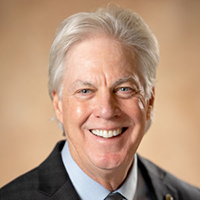
“Former Dean John Turner felt that a Ph.D. program was essential for the School to achieve status as a top-10 school of social work. According to Dean Turner, the foundation for such a program had to be a strong intellectual foundation and faculty research capacity, including a significant increase in external research funding. After many discussions with the planning committee and other stakeholders, ‘social intervention’ was identified as the organizing theme for the program, which was a forerunner to what became known in social work as intervention research. Professor Emeritus Mark Fraser evolved as a leading voice for intervention research in social work across the country, and the School’s Ph.D. graduates became known for their focus on developing and testing empirically based interventions and for their strong research and statistical competencies. This remains true today. As Dean Turner concluded, establishing a quality Ph.D. program was an essential element to the School’s ascendency as a top-ranked school. Since the establishment, the School’s Ph.D. program has been blessed with capable leadership, including Professors Kathleen Rounds, Sheryl Zimmerman, Matthew Howard and Mimi Chapman.”
- Former Dean and Kenan Distinguished Professor Emeritus Gary Bowen ’76 (MSW) (to read Bowen’s full statement, click here.)
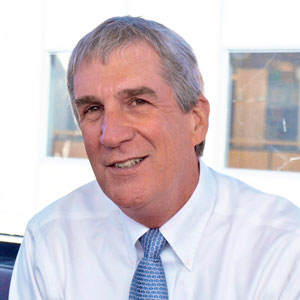
“The doctoral program impacted me in so many ways during the period that I directed the program. Most significantly, I was able to recruit and develop relationships with so many talented students who are now contributing to social work research and education. I learned a great deal from these students as they developed their research and teaching skills and what we as a program needed to nurture their talents and passions. And one absolute requirement of support is adequate student funding. Working with faculty colleagues, I learned how critical they are in supporting and mentoring doctoral students. I was deeply grateful for the strong commitment that faculty had to working closely with doctoral students to ensure their success. And finally, I learned that recognizing the workload of doctoral faculty is a key element to maintaining a robust doctoral program. Directing the doctoral program was one of the highlights of my career at the School of Social Work.
“As it developed over time, I think that our Ph.D. program led the nation in two ways: it focused on the ‘design and development of interventions;’ and it made a commitment to advanced statistical methods. No other Ph.D. program in the country did that. Ultimately, our program was modeled by many other schools, as our graduates began to join faculties across the nation and as deans began to realize how unusual our graduates were.
“What distinguished our graduates was that they arrived as new faculty members ‘armed’ with innovative (newly developed and untested) programs intended to advance social work practice. And, in many cases, they also had the beginnings of NIH research proposals to test these programs and the ideas that undergirded them.
“As a School, we were able to mount a Ph.D. program that was creative — in the sense that students were expected to design new practice strategies — and rigorous, in the sense that students graduated with knowledge of advanced quantitative methods. Of course, we added qualitative methods and measurement to the curriculum … but many programs had that. It was the design and development of interventions that distinguished us. This was made possible, in part, because we had a unique and amazing collection of distinguished faculty — e.g., Rick Barth, Gary Bowen, Maeda Galinsky, Shenyang Guo, Gary Nelson, Dennis Orthner, Kathleen Rounds, Janice Schopler, and Lynn Usher — who were deeply committed to advancing social work practice and to rigorous research methods. (Sorry … I may have left out someone!)
“It was a crazy mix of bright, creative and accomplished people.”
- Professor Emeritus Mark Fraser
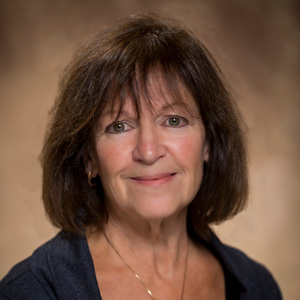
“As a previous associate dean for doctoral education, I was bolstered by the passion, commitment and talent of our doctoral students. I continue to see that passion under the leadership of Associate Dean Mimi Chapman, as our students’ capacity and drive motivates our faculty to assure we’re providing the education our students deserve. We refresh our curriculum on an ongoing basis and create new opportunities for mentorship, all of which helps to maximize student success and impact. When our graduates launch their careers, it’s as uplifting for our faculty as it is for them!”
- Kenan Flagler Bingham Distinguished Professor and Associate Dean for Research and Faculty Development Sheryl Zimmerman
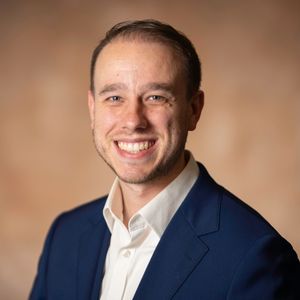
“My favorite thing about the UNC School of Social Work is the community of scholars and opportunities to teach master’s students. My career goals are to add to research on how affordable housing impacts health outcomes, either at a government, nonprofit or academic institution. I was inspired to pursue a graduate degree in social work after volunteering in homeless shelters. I became determined that living on the streets is unacceptable in a rich nation. This scholarship I received has been absolutely critical to the pursuit of my Ph.D. It’s provided me the flexibility to pursue original research opportunities even as a student and learn from some of the key scholars in my area.”
- Ehren Dohler ’25 (Ph.D.)
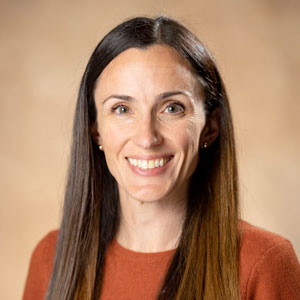
“I am incredibly grateful for my time in the doctoral program at the UNC School of Social Work. During my time in the program, I was able to learn from thoughtful and generous mentors who provided me with multiple opportunities to engage in meaningful, community-engaged research. These experiences sparked my passion for engaging with communities in research focused on answering questions emerging directly from those we most seek to serve and benefit through our research. I also met lifelong friends and wonderful colleagues throughout my time in the doctoral program. I had an amazing cohort and continue to cherish the many memories, laughs, tears and classes we shared along the way. It is a full circle moment that I now get to teach in the program and mentor others, though I learn as much from our students as I hope they learn from me!”
- Associate Professor Cynthia Fraga Rizo ’14 (Ph.D.)
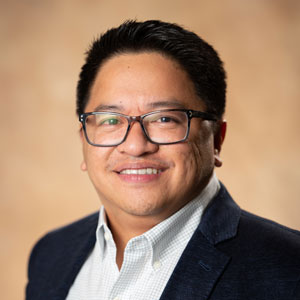
“My doctoral training at UNC was life-changing. It provided a strong foundation that continues to shape how I conduct research and engage with people and communities. The courses helped me develop a robust methodological foundation and a keen eye for detail. The core of the success of my doctoral training here at UNC was the fantastic research mentorship I received. My mentor entrusted me with unparalleled opportunities to delve deeply into the complexities of my research focus and to learn first-hand how to meaningfully work with communities in cross-cultural and various geographic settings. The combination of relevant and cutting-edge methodological courses and effective research mentoring provided me with a strong launching pad to become a faculty member at an R1 university. There is no doubt that our doctoral training is rigorous; it honed my skills, allowing me to contribute meaningful insights to social and behavioral HIV research. Now, as a faculty member who is also teaching in the doctoral program, I leverage this extensive research experience and unmatched mentoring to guide the next generation of scholars. My role enables me to shape the curriculum to reflect cutting-edge developments and to mentor students in conducting research that is both methodologically sound and highly relevant to contemporary challenges in social and behavioral HIV research. I was very fortunate to receive top-flight training and mentoring, so I want to pay it forward.”
- L. Richardson Preyer Early Career Scholar and Associate Professor Rainier Masa ’16 (Ph.D.)
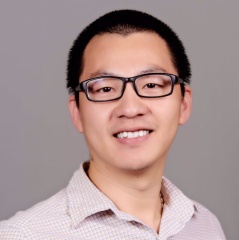
“My Ph.D. journey at the UNC School of Social Work from 2012 to 2017 was a great experience. The program not only provided exceptional training, shaping me into an independent researcher, but also offered invaluable opportunities for collaboration. The professors, truly the best in their field, not only imparted research methodologies but also acted as mentors and friends. Their guidance and encouragement fostered a collaborative and supportive environment that extended beyond the classroom. Even after graduation, I remain connected to the School, participating in receptions at SSWR (Society for Social Work and Research) or APM (Council on Social Work Education’s Annual Program Meeting), contributing to ongoing research projects, and continuing conversations with professors. The connections and mentorship I received at UNC-Chapel Hill continue to influence my research pursuits, and I am so proud of being a Tar Heel!”
- Arizona State University School of Social Work Associate Professor Shiyou Wu ’17 (Ph.D.) (Photo Courtesy Arizona State University)

